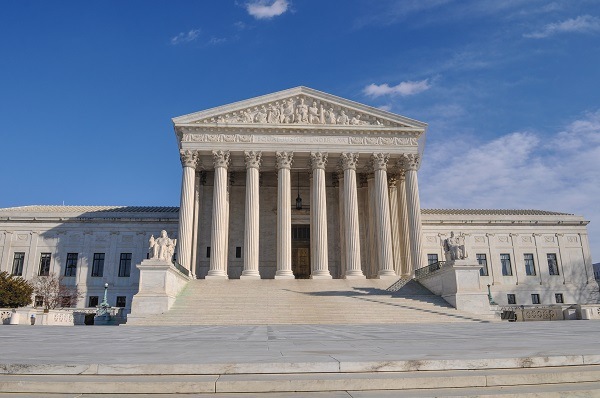Governor Newsom signed several bills into law that will affect California employers in 2021. Unless otherwise indicated, all new laws take effect January 1, 2021.
Wage and Hour
- SB 1384 (Wage Claims/Arbitration): This bill amends Labor Code 98.4 to allow the Labor Commissioner to provide representation to a claimant in connection with opposing an employer’s petition to compel arbitration of the claim, and/or in any arbitration hearing ordered for resolution of the claim. Labor Commissioner representation applies where the claimant requests it and is financially unable to afford representation, and the Labor Commissioner determines the claim has merit based on an initial investigation.
- AB 1512 (On-call rest breaks/Security Industry): This bill is industry-specific and is limited to the security services industry. It is a much needed bill that amends California rest break law to allow unionized security guards to remain on-call during their rest breaks. This new law abrogates the California Supreme Court’s horrible 2016 ruling in Augustus v. ABM Security Services (prohibiting on-call rest breaks) for covered employees. This new rest break law takes effect immediately as urgency legislation but is only applicable to guards covered by certain collective bargaining agreements.
- AB 2479 (On-Call Rest Breaks): Allows on-call rest break exception for certain safety-sensitive positions for petroleum facilities.
- SB 973 (Pay Data Reporting): This bill is one that the Legislature has been trying to pass for a couple of years, but has not succeeded in doing so – until now. This bill requires private employers with 100 or more employees to submit a pay data report to California’s Department of Fair Employment and Housing (DFEH) by March 31, 2021, and annually thereafter. The report essentially must include information on the numbers of employees, by race, ethnicity and gender, who are employed in specified job categories. The report also must provide pay band data for these workers. The purpose of the report is to assist the DFEH in identifying discriminatory pay practices.
Obligations Concerning Domestic Violence
- AB 2992 (Expanded Protections/Domestic Violence, Sexual Assault): Existing law (Labor Code 230-230.1) provides employment protections and certain rights to time off of work for employees who are victims of domestic violence, sexual assault, and/or stalking. AB 2992 expands these laws to cover employees who are victims of “crime” or “abuse.”
- AB 1963 (Mandatory Reporting for HR Professionals): Supplements the list of “mandated reporters” in the Child Abuse and Neglect Reporting Act to add human resource professionals who accept complaints or discrimination, harassment, or retaliation. Applicable employers must train all “mandated reporters” in child abuse and neglect identification and reporting.
COVID-19 and Sick Leave Related
- SB 275 (Healthcare Employers/PPE): This bill requires specified healthcare employers, beginning January 1, 2023, to maintain an inventory of new and unexpired PPE sufficient to cover 45 days of surge consumption in the event of a declared state of emergency.
- AB 2537 (Acute Care Hospitals/PPE): This bill, which became effective immediately as urgency legislation, requires public and private employers of general acute care hospital workers to supply those employees who provide direct patient care or provide services that directly support personal care with the personal protective equipment necessary to comply with specified regulations. The bill also requires an employer to ensure that the employees use the personal protective equipment supplied to them. The bill further requires that an employer in this context, beginning April 1, 2021, maintain a supply of specified equipment in an amount equal to 3 months of normal consumption.
- AB 685 (COVID Reporting): This new law requires employers who receive notice of potential exposure to their workforce of COVID-19 to provide specified disclosures to employees within one business day. Also requires employers to notify their local public health agency within 48 hours of a COVID-19 “outbreak.”
- SB 1159 (COVID Workers’ Comp Coverage): This new law, which became effective September 17, 2020 as urgency legislation, extends the presumption of workers’ compensation coverage for COVID illnesses contracted by certain employees who work outside the home. This new law also provides new COVID reporting obligations for employers and addresses “outbreak” presumptions.
- AB 1867 (Supplemental COVID Sick Leave): This new law, which became effective September 17, 2020 as urgency legislation, requires private employers with more than 500 employees, to provide up to 80 hours of supplemental paid sick leave to employees to use for specified COVID purposes. Important in this law is that employees working from home are not eligible for supplemental paid sick leave.
Other Leave Related
- SB 1383 (Expansion of CFRA Leave): This new law expands California’s Family Rights Act to require employers with as few as five employees to provide up to 12 weeks of unpaid leave to employees for covered reasons, including serious health conditions of the employee or a family member and/or for baby bonding. The bill also expands the qualifying reasons for leave to include qualifying exigencies related to a family member being called to active duty. Finally, the bill eliminates prior rights of employers to limit leave to 12 weeks of combined baby-bonding leave when both parents are employees, and further eliminates prior rights of employers to limit reinstatement for certain key employees.
- AB 2017 (Kin Care Leave): Existing law, Labor Code 233, provides that employees must be permitted to use at least half of their annual accrual of employer-provided sick leave for “kin care” (family) reasons. This bill amends the law to provide that it is up to the employee’s “sole discretion” to designate leave to use for this purpose.
Independent Contractors and the Gig Economy
- AB 2257 (More Dynamex Exemptions): This bill expands the categories of exemptions from the independent contractor classification test set forth in Dynamex Operations West, Inc. v. Superior Court of Los Angeles and codified in AB 5. AB 2257 maintains the essential framework of AB 5 – the ABC Test remains the default standard for independent contractor misclassification. However, swift and concerted lobbying efforts have prompted a plethora of new statutory exemptions from the ABC Test, which apply retroactively where applicable.
- Prop 22 (Gig Worker Classification): Through the initiative process, California voters approved Prop 22 which allowed app-based, ride-hailing and delivery companies to classify workers as independent contractors. Applicable contractors are provided certain additional benefits such as increased minimum wage during active time, stipends for healthcare and certain coverages for work injuries.
Privacy
- AB 1281 (CCPA): This bill extends the employer exemption from certain provisions of the California Consumer Privacy Act (CCPA) to January 1, 2022. Employers are reminded that they ARE covered by the notice provision of the CCPA, requiring them to provide notice to applicants/employees of personal information collected and the purposes for which it is used.
Administrative and Litigation
- AB 1947 (Extension of Time to File Labor Commissioner Complaints): This bill amends Labor Code section 98.7 to enlarge the time for employees to file complaints with the Labor Commissioner for claims that they were discriminated against or discharged in violation of Labor Code provisions enforced by the Labor Commissioner. The employee now has one year, instead of six months, to file a claim with the Labor Commissioner. This bill also amends Labor Code section 1102.5 to allow an employee who prevails on a claim for certain types of retaliation to recover his or her attorneys’ fees.
- AB 2143 (No Rehire Provisions/Settlement Agreements): Last year, California enacted a new law (Code of Civil Procedure 1002.5) prohibiting the inclusion of a no rehire provision in settlement agreements of employment disputes. AB 2143 makes some modest changes to this law, including creating an exception for employees found to have engaged in criminal conduct.
Other Topics
- AB 979 (Diversity of Board Membership): In 2018, California passed a new law requiring publicly traded corporations with principal executive offices in California to have at least one female on their board of directors by the end of 2019, and increasing the female representation on the board to two or three by the end of 2021 (depending on size of the board). AB 979 expands on the diversification requirements by now requiring these corporations to have at least one board member from an underrepresented community by the end of 2021. That minority representation must increase to two members by the end of 2022 for boards with between five to eight members, and three members for boards with more nine or more members.
- AB 3075 (Corporate Statement of Information): Existing law requires business entities to file a Statement of Information containing specified information with the Secretary of State. AB 3075 imposes a new requirement that the statement of information indicate whether any officer or director has an outstanding final judgment issued by the DLSE or a court (from which no appeal is pending) for violation of a wage order or the Labor Code. The new requirement starts January 1, 2022 or when the Secretary of State certifies that it has implemented California Business Connect, whichever is earlier. AB 3075 also provides that a successor to any judgment debtor is liable for any wages, damages, and penalties owed to the predecessor’s former workforce pursuant to that judgment.

